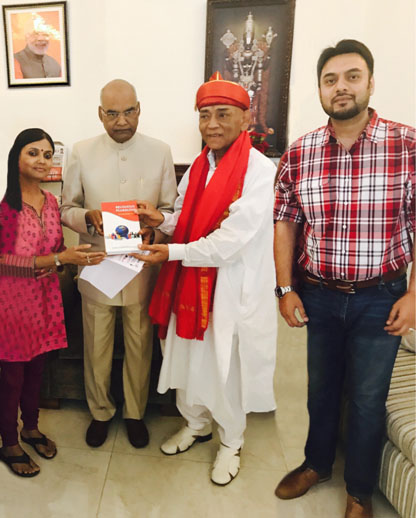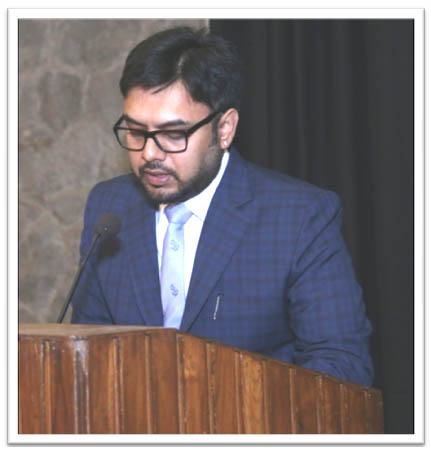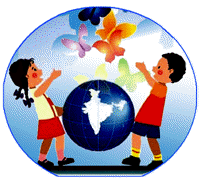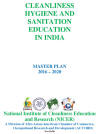|
New Delhi, 12 December 2016 (World Cleanliness
Day)
The Union Minister of State for Health and
Family Welfare, Government of India Ms. Anupriya
Patel while inaugurating the 2016 World
Cleanliness Convention advocated among the
policymakers, diplomats, academicians, students
and activists to design and implement
cleanliness friendly activities with a view to
giving a boost to the Swachchh Bharat Abhiyan
launched by the Hon’ble Prime Minister of India
Narendra Modi.
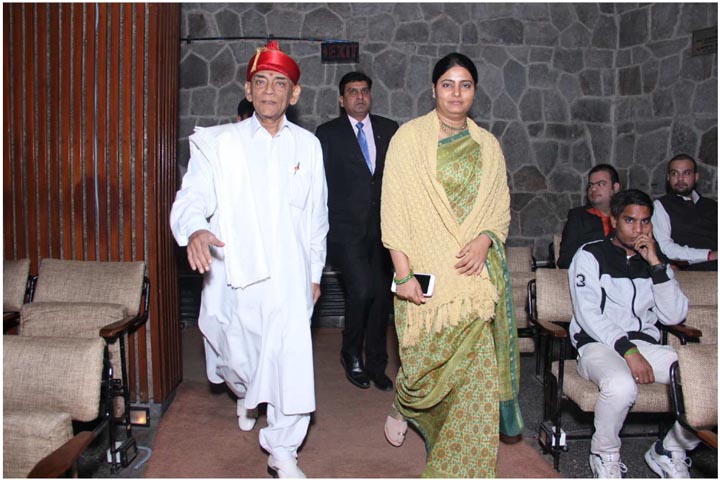
The Union Minister of State for Health and
Family Welfare Hon’ble Smt. Anupriya Patel
and the President of the Confederation of Indian
Universities (CIU) Chancellor Dr. Priya Ranjan
Trivedi entering the Auditorium of India
International Centre, New Delhi during
the inaugural session of the World Cleanliness
Convention on 12 December 2016.
She thanked the National Institute of
Cleanliness Education and Research (NICER) for
working day and night in association with the
Confederation of Indian Universities (CIU), the
Afro-Asian-American Chamber of Commerce,
Occupational Research and Development (ACCORD)
and Jamia Hamdard University for monitoring and
evaluating the Swachchh Bharat Abhiyan
implementation schedule in the schools, colleges
and universities.
She further added that she has been keenly
interested in the fields of cleanliness, hygiene
and sanitation since her childhood. Even during
my college and university education and
training, she had been stressing on the urgent
need of bringing cleanliness in the family and
at home by empowering all the family members
specially the women.
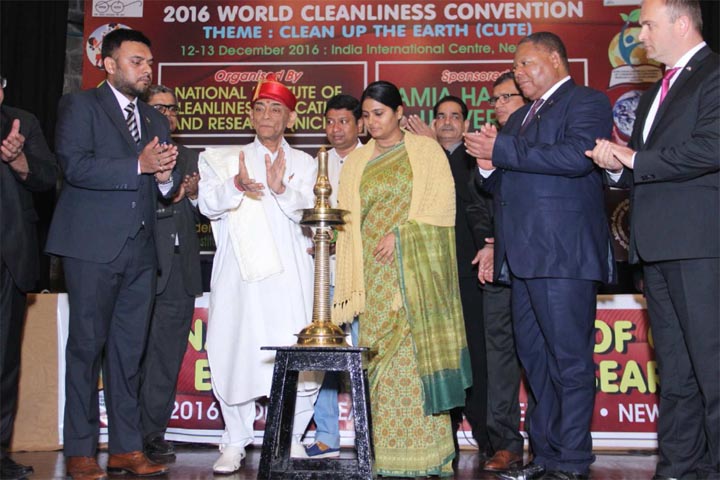
The Union Minister of State for Health and
Family Welfare Hon’ble Smt. Anupriya Patel
lighting the lamp to mark the inauguration of
the World Cleanliness Convention 2016
at 10 am on 12 December 2016 with the theme
“Clean Up The Earth (CUTE”.
She was also overwhelmed to know from the
organisers that 51 reputed universities of our
country had joined hands under G-51 (Group of 51
Universities for bringing awareness regarding
Cleanliness, Hygiene and Sanitation Education -
CHASE) in all States as well as Union
Territories. I am sure that the remaining
universities, colleges and schools will get
proper guidance from G-51 for implementing
Swachchh Bharat Abhiyan in an optimum manner.
She also released two important Manuals and
Handbook namely "Swachchh Bharat Vishwakosh" and
"Cleanliness Handbook and Manual". She admired
the hard work put in by the authors, editors and
contributors in this important publication.
She lauded the efforts of CIU and NICER for
jointly publishing the 11 Volume World
Encyclopaedia of Cleanliness, Hygiene and
Sanitation Education (WE-CHASE).
While appreciating the publications she said
that the topics included for training among the
young boys and girls specially in the
specialised areas of Cleanliness; Hygiene
Concepts; Sanitation Education; Public Health;
Solid and Liquid Waste Management; Water Quality
Monitoring and Surveillance; Ecological and
Environmental Protection; Water and Sanitation
related Diseases; Gender Equality and Human
Rights etc. will go a long way in making a
cleaner and greener country in general and our
schools, colleges, universities, temples,
gurudwaras, mosques, churches, offices, rivers,
ponds, mountains, industries more cleaner by
also providing training in the areas of
attitudinal and behavioural change among the
Indian as well as the world citizenry.
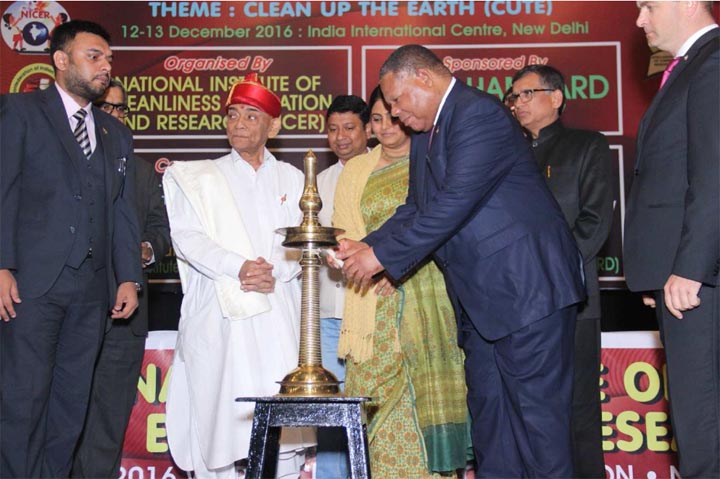
The High Commissioner of Malawi lighting the
lamp on 12 December 2016.
She further explained while observing the
delegates that many school children accompanied
by their teachers in this auditorium as they
have come to get felicitated for their active
participation in the cleanliness related
activities at their respective schools. She
congratulated each one of them and she was
confident that these school children will
finally become change agents for making the
entire country more cleaner.
She also thanked the National Institute of
Cleanliness Education and Research for their
slogan "Catch Them Young" and hoped that the
idea was to catch the children young so that
they could become didactics and educators to
finally educate and guide their fathers,
mothers, teachers, guardians, colleagues and
rather the entire neighbourhood.
While connecting this movement to her Ministry
she said that cleanliness has a direct bearing
on my Ministry of Health and Family Welfare as
there can be an immediate control on diseases
the movement we learn as to how to remain
cleaner with proper hygiene and sanitation.
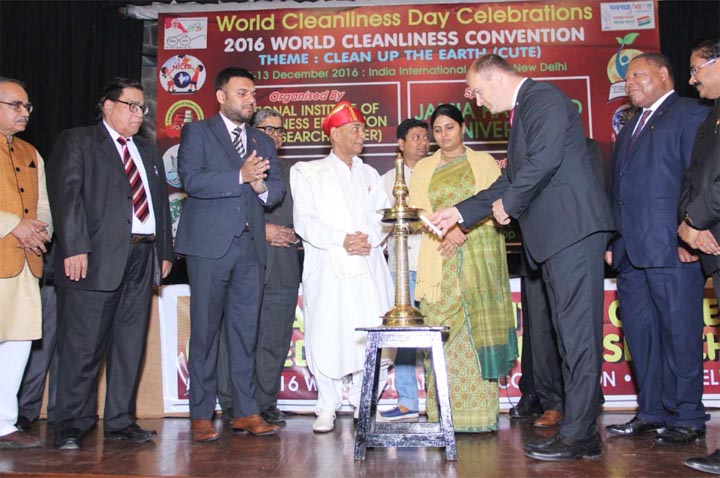
The Ambassador of Estonia lighting the lamp on
12 December 2016.
She also discussed that her ministry had already
asked the States to work resolutely on improving
cleanliness at all levels. The State Governments
have been informed that the Ministry of Health
and Family Welfare would be supporting the
States in their endeavours and accordingly two
hospitals in large States would get cash awards
of Rs. Fifty Lakhs for the Best Hospital and Rs.
Twenty Lakhs for the runner-up award. The Best
District Hospital in a small States would be
awarded Rs. Fifty Lakhs. These awards have been
instituted by the Ministry of Health and Family
Welfare under the Swachchh Bharat Abhiyan launch
by our Prime Minister on 2nd October
2014 to focus on promoting cleanliness in public
places.
She further elucidated that the Ministry of
Health and Family Welfare had also launched a
national initiative for awards to Swachchh
Public Health facilities on 15 May 2015 under
the National Health Mission for promoting a
cleaner environment in public health facilities
which are essential to the dignity, comfort and
speedy recovery of the patients.
She said that her Ministry had also issued
Swachchh Hospital Guidelines by laying out the
protocol and processes for maintaining
cleanliness and hygiene at public health
facilities. Guidelines containing protocols for
objective assessment of health facilities
allowing for comparison of two or more health
facilities within a District or State for the
purpose of giving the Awards. The idea is to
help improve public health facilities to attain
National Quality Standards pertaining to
cleanliness.
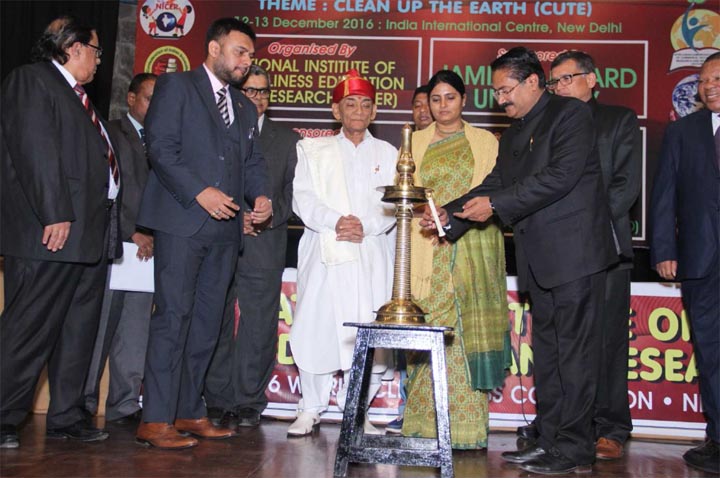
The Vice Chancellor of LNMU, Darbhanga lighting
the lamp on 12 December 2016.
Talking of employability research she said that
these days everybody was talking about the
problem of unemployment and that is why the need
for employment generation. She wanted to must
tell the audience that there were millions of
jobs in the areas of cleanliness, hygiene and
sanitation. The need is to vocationalise these
careers by launching employment centric training
programmes in the areas of cleanliness, hygiene,
sanitation, garbage, solid and liquid waste
management, hazardous waste management, hospital
waste management, recycling, alternate energy
resource development from human wastes etc.
Delivering his presidential address Chancellor
Dr. Priya Ranjan Trivedi, President of the
Confederation of Indian Universities said that
the Agenda envisaged by his team was to support
green, clean, resilient paths for developing as
well as developed countries, as the idea was to
pursue poverty alleviation and development in an
increasingly fragile environment.
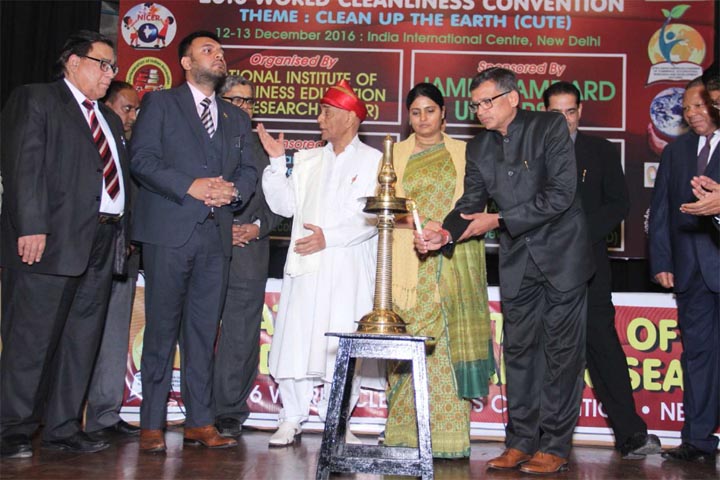
The Vice Chancellor of Manipal University,
Jaipur lighting the lamp on 12 December 2016.
He further added that the words “Clean” and
“Green” referred to a world in which natural
resources, including oceans, land, and forests,
where sustainably managed and conserved to
improve livelihoods and to ensure food security
for longing to have a world in which healthy
ecosystems increase all the economic returns
from the activities they support. Growth
strategies are focused on overall wealth rather
than GDP as it was currently measured.
Governments pursue regulations that encourage
innovation, efficiency, sustainable budgeting,
and green growth. Biodiversity is protected as
an economically critical resource. In this
world, good policies enable the private sector
to use natural resources sustainably as part of
good business, creating jobs and contributing to
long-term growth, he further explained.
Biodiversity continues to decline as a result of
habitat destruction and degradation. Over the
past 40 years, there have been significant
declines in healthy ecosystems-e.g., forests,
mangroves, sea grass beds, coral reefs-and their
flora and fauna populations, with species loss
affecting everything from fungi to insects,
plants, frogs, tigers, and gorillas. Forests
have seen annual losses of 7.5 million hectares
between 2000 and 2015, despite declines in
deforestation rates and increased forest
plantations. As a result, the capacity of
ecosystems to provide services such as water
provisioning and flood control has declined
significantly. Land degradation is also
worsening as a result of deforestation and poor
agricultural practices, with soil erosion,
salinization, and nutrient depletion
contributing to desertification. Freshwater
supplies are seriously stressed, with 1.4
billion people living in river basins in which
water use exceeds recharge rates. Oceans and
shared seas are also under stress from climate
change, overharvesting, pollution, and coastal
development. The decline of marine resources
threatens the livelihoods of over 100 million
men and women involved in fish processing, he
said while explaining his keynote speech.
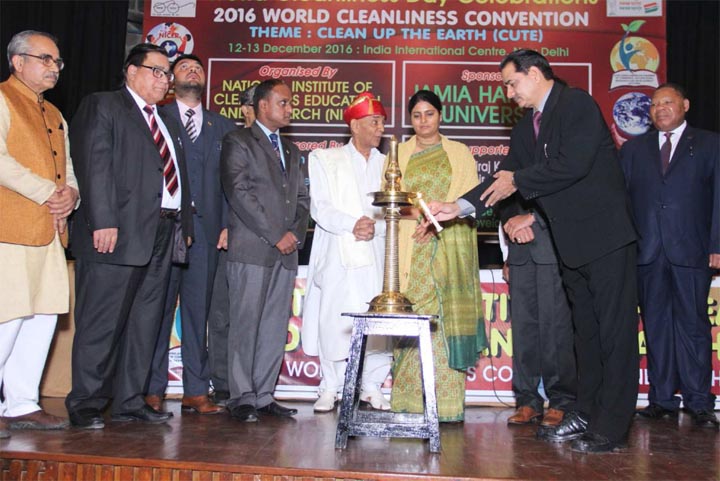
The Vice Chancellor of Lucknow University
lighting the lamp on 12 December 2016.
Dr. Trivedi also said that “Clean” referred to a
low-pollution, low-emission world in which
cleaner air, water, and oceans enable people to
lead healthy, productive lives. It is a world
where development strategies put a premium on
access-so that rural women no longer spend their
days hauling wood-alongside options for
low-emission, climate-smart agriculture,
transport, energy, and urban development.
Cleaner production standards spur innovation,
and industry is encouraged to develop clean
technologies that provide jobs and support
sustainable growth. Companies and governments
are held to account on their low-emission,
low-pollution commitments, and innovative
financing helps to spur change.
The poorest countries suffer directly and
measurably from an increasingly polluted and
degraded environment, with women and children
disproportionately affected. Air and water
pollution are rising sharply in cities in lower-
and middle-income countries, and developing
countries' water resources are under threat from
drawdown and pollution-human waste, phosphorus,
and nitrogen that deplete waterways of oxygen
and causing the death of fish and invertebrates.
The increased use of fertilizers for food crops
over the next 30 years is expected to result in
a 10- to 20-percent global increase in river
nitrogen flows to coastal ecosystems (UNEP
2007). In some regions, levels of heavy metals,
stockpiles of persistent organic pollutants (POPs),
and other chemical wastes from industry, which
affect human and animal health, water supplies,
and land, are increasing. Meanwhile, carbon
dioxide emissions continue to rise, reaching a
record high in 2010 and making it more
challenging to limit the rise in global
temperatures to 2 degrees by 2100.
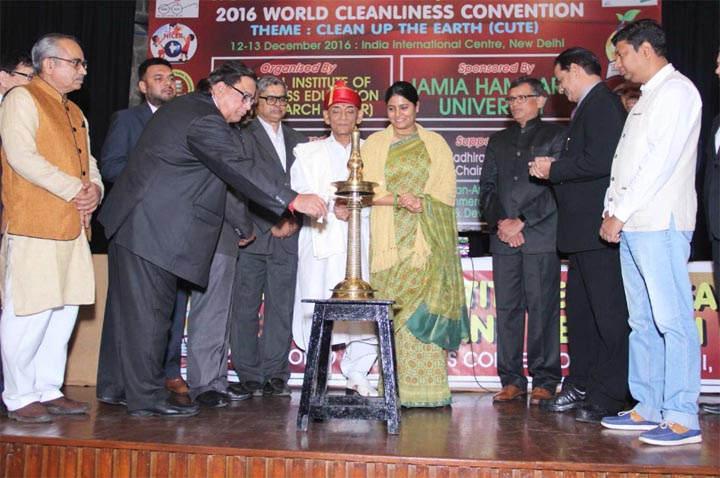
The Vice Chancellor of Glocal University,
Saharanpur lighting the lamp on 12 December
2016.
Recognizing that countries cannot "grow dirty
and clean up later," the Bank Group is
encouraging low-emission development strategies
and innovative financing for renewable energies,
climate-smart agriculture, and lower-carbon
cities. It is also supporting pollution
management through river clean-up and legacy
pollution projects, using carbon finance funds
to scale up use of cleaner stoves to reduce
indoor pollution for women and children, and
developing partnerships with the private sector
to spur cleaner production standards and
strategies.
“Resilient” means being prepared for shocks and
adapting effectively to climate change. In a
resilient world, countries are better prepared
for more frequent natural disasters, more
volatile weather patterns, and the long-term
consequences of climate change. Healthy and
well-managed ecosystems are more resilient and
so play a key role in reducing vulnerability to
climate change impacts. Climate resilience is
integrated into urban planning and
infrastructure development. Through effective
social inclusion policies, countries and
communities are better prepared to protect
vulnerable groups and fully involve women in
decision-making.
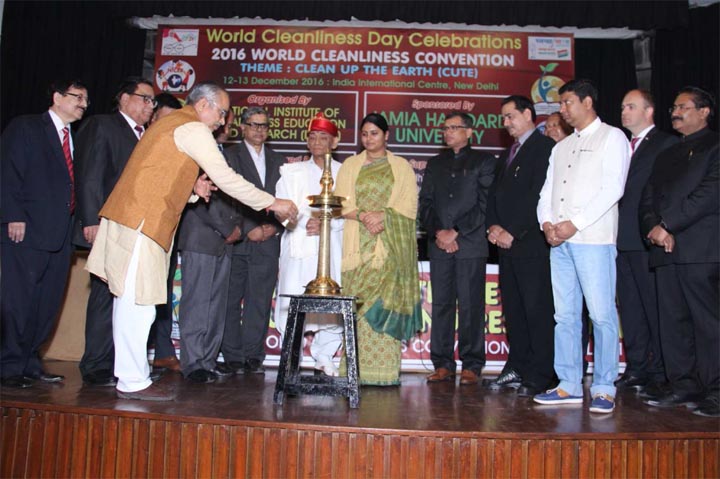
The Vice Chancellor of Atal Bihari Vajpayee
Hindi Vishwavidyalaya, Bhopal
lighting the lamp on 12 December 2016.
Climate change will increase the vulnerability
of human and natural systems. The economic costs
of climate change and variability will be large,
making it even more challenging to address
issues of poverty and environmental degradation.
Natural hazards-earthquakes, droughts, floods,
and storms-continue to cause significant loss of
life and economic damage, with women and
children the most affected by disasters. Cities
and Small Island Developing States are also
particularly vulnerable.
The important countries participating in the
World Cleanliness Convention were Nepal, Malawi,
Fiji and Estonia from where the respective
Ambassadors and High Commissioners participated
and presented their views.
The High Commissioner of Malawi H.E. Dr. Mbuya
Isaac G. Munlo announced that his country had
already started cooperating with the National
Institute of Cleanliness Education and Research
(NICER) for having an outfit of NICER in Malawi
for covering entire Africa for launching
cleanliness activities. He further added that
the Her Excellency first lady of Malawi had
taken keen interest in this proposal and that
the senior diplomats of Malawi stationed at New
Delhi had been camping in Malawi for giving a
final shape to this proposal.
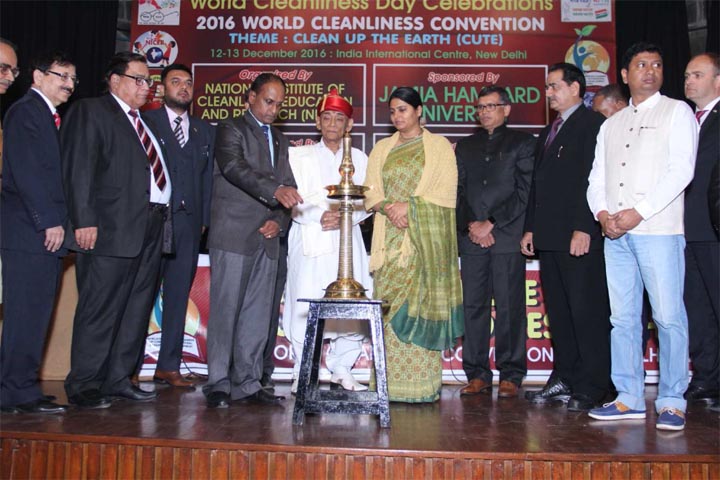
The Deputy Head of Fiji High Commission lighting
the lamp on 12 December 2016.
The Ambassador of Estonia H.E. Mr. Riho
Kruuv
while presenting his views on cleanliness,
hygiene and sanitation in his country told that
his country had to work hard to bring
cleanliness to his country but after the
citizenry have understood its important, they
maintained cleanliness everywhere. He hoped that
India and Estonia would exchange information in
this regard and accordingly invited the National
Institute of Cleanliness Education and Research
(NICER) to join hands with Estonia in this
regard.
The Valedictory Address was presented by H.E.
Mr. Deep Kumar Upadhyay, the Ambassador of Nepal
who wished that India and Nepal could
strengthened its ties with a view to solving the
problems related to higher education,
employment, entrepreneurship and peace building.
He was congratulated by the CIU President
Chancellor Dr. P R Trivedi for the commitment of
the Ambassador of Nepal to house the proposed
tertiary level institution by the name of
“South-Asian Vocational University” at
Kapilvastu, Lumbini area in Nepal for enabling
the students from all the SAARC countries to
study vocational and employment centric courses
specially for becoming job givers, rather than
job seekers.
The Official Representative of the Government of
Fiji Mr. O.P. Goundar appreciated the efforts of
the National Institute of Cleanliness Education
and Research (NICER) and hoped that appropriate
support will be available to Fiji from India for
different academic, vocational and professional
teaching, training and research.
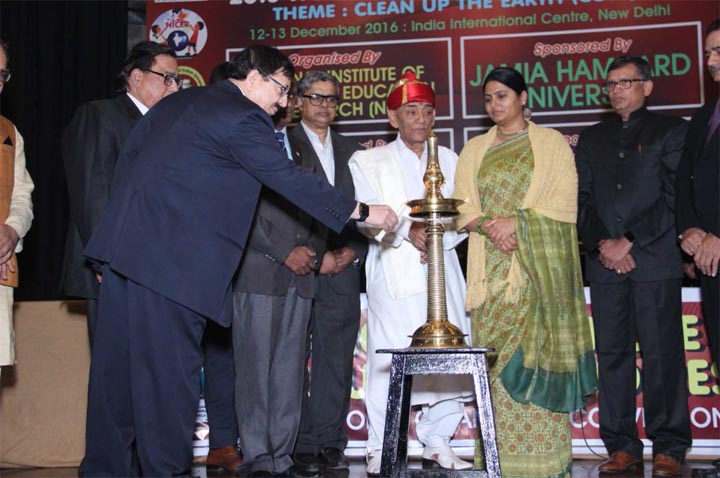
The Vice Chancellor of Jamia Hamdard University,
New Delhi
lighting the lamp on 12 December 2016.
Many universities announced cooperation with
NICER on this occasion. Those who were
felicitated with the Lifetime Achievement Awards
were Prof. Anjan K. Ghosh, Vice Chancellor,
Tripura University, Agartala; Prof. Seyed
Ehtesham Hasnain, Vice Chancellor, Jamia Hamdard
University, New Delhi; Dr. Firdous A. Wani,
Registrar, Jamia Hamdard University, New Delhi;
Prof. Sandeep Sancheti, Vice Chancellor, Manipal
Univeristy, Jaipur; Prof. Gurdeep Singh,
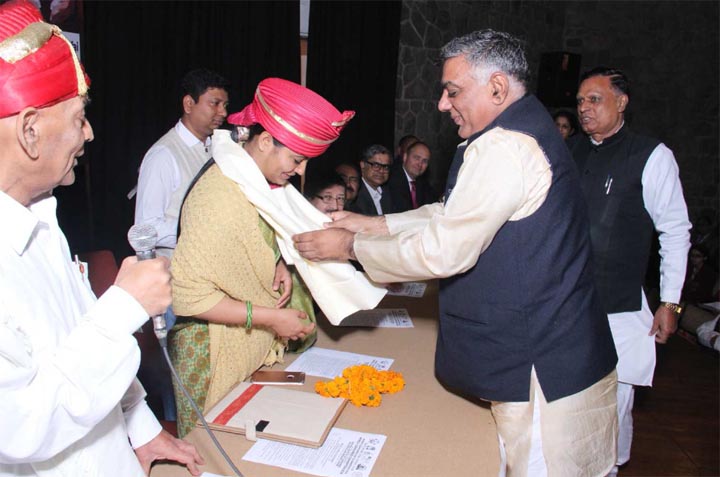
The Chief Guest Smt. Anupriya Patel, Union
Minister of State for Health and Family Welfare
being felicitated with a shawl and a turban
during the World Cleanliness Convention
Organized by the National Institute of
Cleanliness Education and Research (NICER).
Vice Chancellor, Vinoba Bhave University,
Hazaribag; Prof. Surendra Pratap Singh, Vice
Chancellor, University of Lucknow; Prof.
Mohanlal Chhipa, Vice Chancellor, Atal Bihari
Vajpayee Hindi Vishwavidyalaya; Prof. S. Subbiah,
Vice Chancellor, Alagappa University, Karaikudi;
Prof. Akhilesh Waoo, A.K.S. University, Satna;
Dr. Pawan K. Aggarwal, Vice Chancellor, ICFAI
University, Dehradun; Major V.N. Saxena,
Professor, ICFAI Business School, Dehradun; Dr.
Davinder Singh, Secretary, Kalgidhar Trust and
Director Principal, Akal Academies; Shri
Deshpande Zakir Hussain; Ms. Deshpande Amina
Zakir; Mr. K.C.R. Devendranath Tagore; Ms.
Ishwariya Lakshmi; Prof. (Dr.) B.L. Raina, Vice
Chancellor, The Glocal University, Saharanpur;
Prof. Saket Kushwaha, Vice Chancellor, L.N.
Mithila Unaiversity, Darbhanga; Prof. Aftab
Anwar Shaikh, Pro Chancellor, Commonwealth
Vocational University, Tonga; Dr. Rakesh R.
Mittal, Pro Vice Chancellor, Commonwealth
Vocational University, Tonga; Dr. Vinod K.
Choudhary, Maharajadhiraj Kameshwar Singh
Darbhanga Chair on Sociology, LNMU, Darbhanga;
Dr. Vidyanath Jha, Principal, MRM Collge, LNMU,
Darbhanga; Prof. Dr. C. Swaminathan, Vice
Chancellor, Periyar University, Salem; Dr. R.P.P.
Singh, Vice Chancellor, Kolhan University,
Chaibasa; Dr. Gopal Krishna, Director and Vice
Chancellor; CIFE, Mumbai; Dr. N.K. Agrawal, PIO
and Associate Professor, LNMU, Darbhanga; H.E.
Deep Kumar Upadhyay, Ambassador of Nepal at New
Delhi; H.E. Milan Hovorka, Ambassador of Czech
Republic at New Delhi; Mr. Om Prakash Goundar,
Second Secretary, Fiji High Commission at New
Delhi; Dr. (Lt. Col.) G.P.I. Singh, Vice
Chancellor, Adesh University, Bathinda; Dr. K.
Sathiyanarayanan, Registrar, VIT University,
Vellore; Dr. Chandrakant M.H., Central Institute
of Fisheries Education, Mumbai; Dr. Swadesh
Prakash, CIFE, Mumbai; Dr. S.K. Agarwal,
Chancellor, Pragyan International University,
Ranchi; and Prof. Anisa Basheer Khan, Vice
Chancellor (Offtg.), Pondicherry University,
Puducherry.
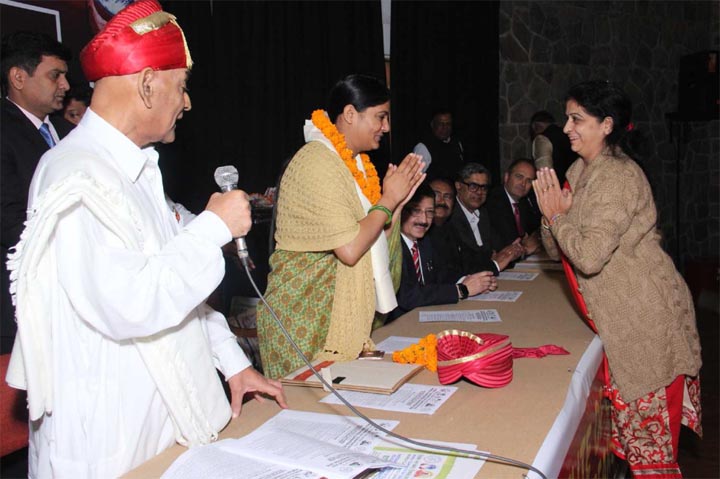
The Chief Guest Smt. Anupriya Patel, Union
Minister of State for Health and Family Welfare
being felicitated with a garland by Smt. Neelam
Joshi during the World Cleanliness
ConventionOrganized by the National Institute of
Cleanliness Education and Research.
The Director of National Institute of
Cleanliness Education and Research (NICER) Dr.
Utkarsh Sharma while announcing his future
action plans said that the next programme of
NICER will be on the occasion of the National
Cleanliness Day on 12th March 2017 at
India International Centre, 40 Lodi Estate, New
Delhi with the theme of “Beginning the
Cleanliness Decade : 2017-2027. The sub themes
of the Cleanliness, Hygiene and Sanitation
Education (CHASE) Summit to be held on 12th
March 2017 will be “Preparing for the
Cleanliness Decade” and “Implications of the
Cleanliness Decade”, Dr. Sharma added and
opined.
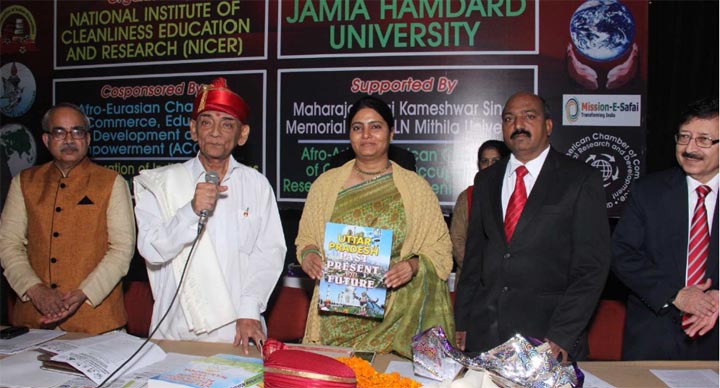
The Chief Guest Smt. Anupriya Patel, Union
Minister of State for Health and Family Welfare
receiving the revised edition of the Book “Uttar
Pradesh : Past, Present and Future”
authored by Dr. Priya Ranjan Trivedi.
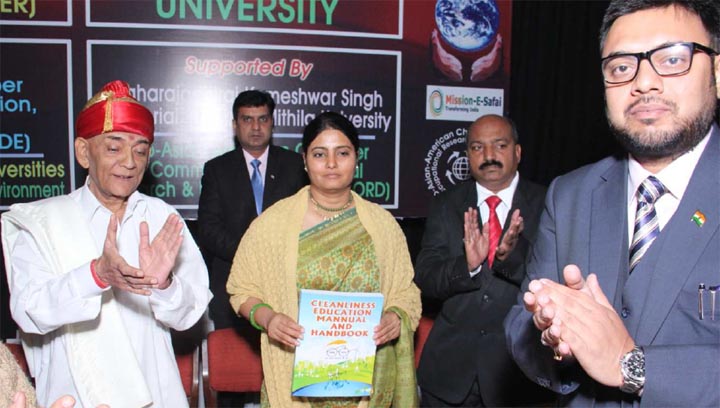
The Chief Guest Smt. Anupriya Patel, Union
Minister of State for Health and Family Welfare
releasing the “Cleanliness Education Manual and
Handbook” brought out by the
National Institute of Cleanliness Education and
Research (NICER) with the active support
and guidance provided by the Confederation of
India Universities (CIU)
and the G-51 (Group of 51 Universities) for
bringing cleanliness all over the country.
In this photographs are (from left to right) Dr.
Priya Ranjan Trivedi, Smt. Anupriya Patel,
Dr. Aftab Anwar Shaikh and Dr. Utkarsh Sharma.
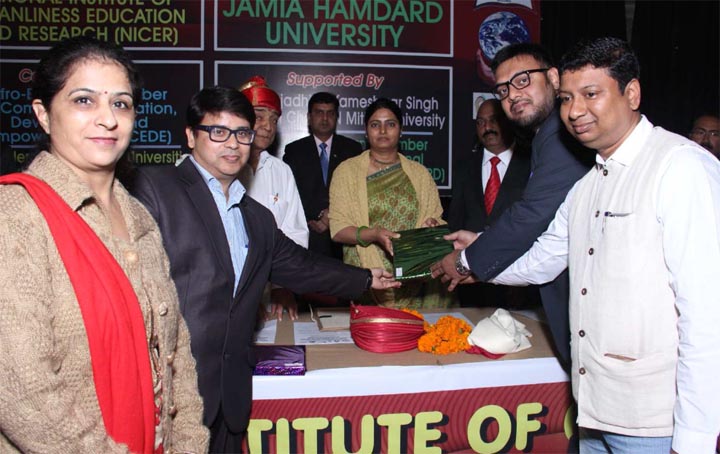
The Editorial Board Members for bringing out the
Book “Cleanliness, Hygiene and Sanitation
Education”
presenting the Book to be released by the Chief
Guest Smt. Anupriya Patel,
Union Minister of State for Health and Family
Welfare on 12 December 2016 at New Delhi.
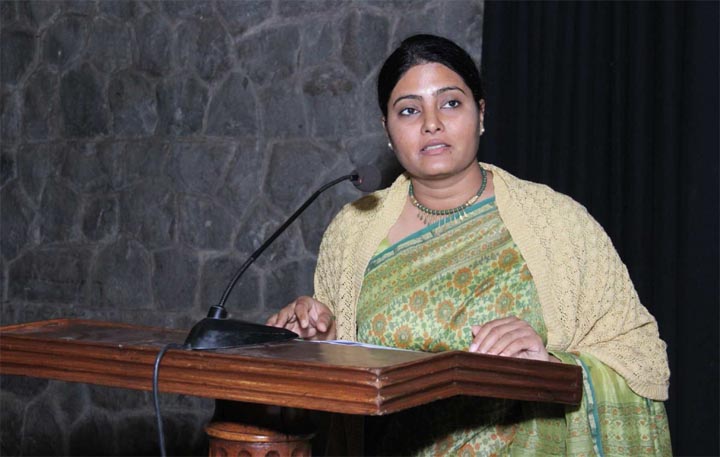
Hon’ble Smt. Anupriya Patel, Union Minister of
State for Health and Family Welfare
delivering her inaugural address on 12 December
2016 on the occasion of the
World Cleanliness Convention at New Delhi.
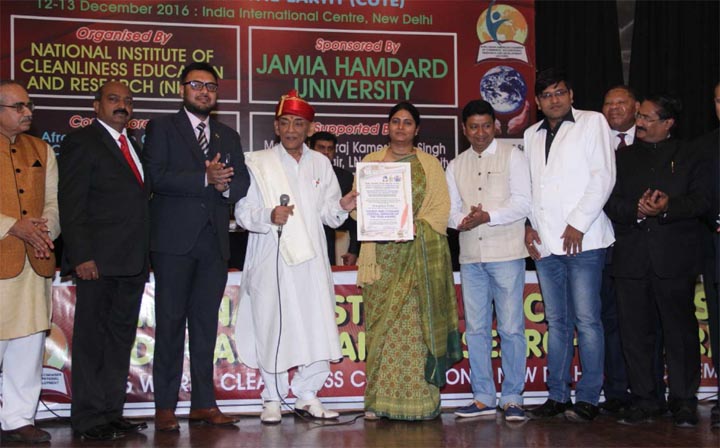
Hon’ble Smt. Anupriya Patel, Union Minister of
State for Health and Family Welfare
being conferred with the “Young and Dynamic
Union Minister of the Year Award”
on 12 December 2016 during the World Cleanliness
Convention 2016.
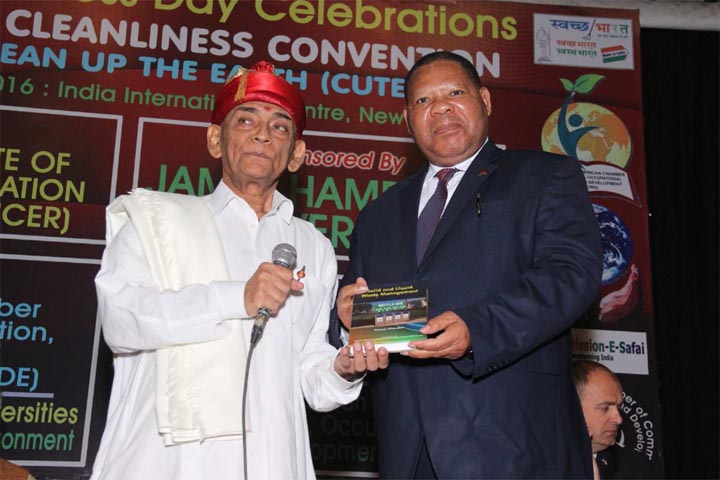
The High Commissioner of Malawi releasing the
Book “Solid and Liquid Waste Management”
in the august presence of Chancellor Dr. Priya
Ranjan Trivedi on 12 December 2016.
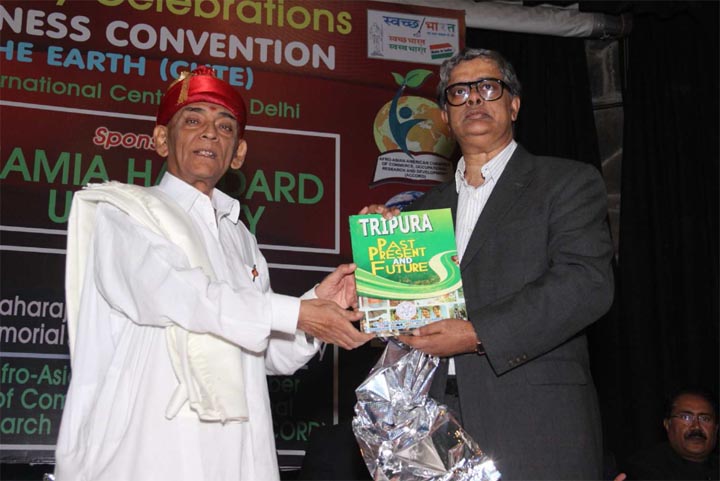
Prof. Anjan K. Ghosh, Vice Chancellor, Tripura
University receiving the Book “Tripura : Past,
Present and Future” from the Author Dr. Priya
Ranjan Trivedi on 12 December 2016.
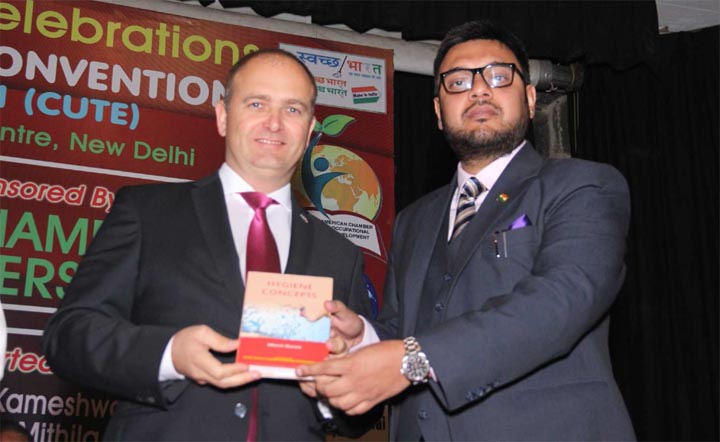
The Ambassador of Estonia releasing the Book
“Hygiene Concepts” authored by Dr. Utkarsh
Sharma.
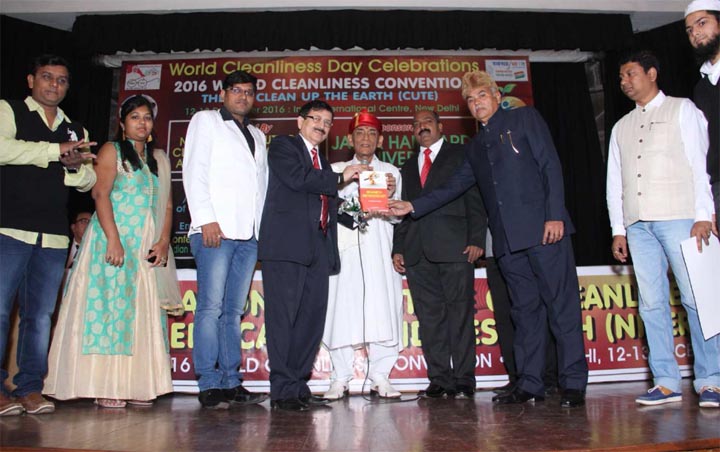
The Vice Chancellor of Jamia Hamdard releasing
the Book titled “Research Methodology”
authored by Prof. Aftab Anwar Shaikh.
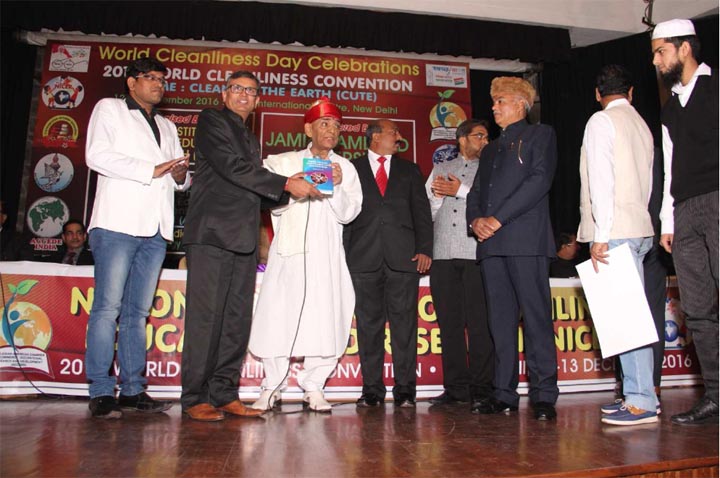
The Vice Chancellor of Manipal University Jaipur
releasing the Book “Water Quality Monitoring
and Surveillance” during the World Cleanliness
Convention.
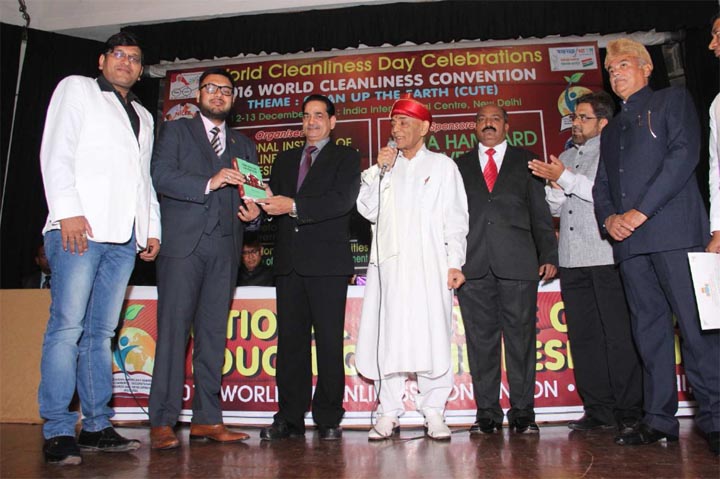
The Vice Chancellor of Lucknow University
releasing the Book “Sanitation Education”
under the aegis of National Institute of
Cleanliness Education and Research (NICER).
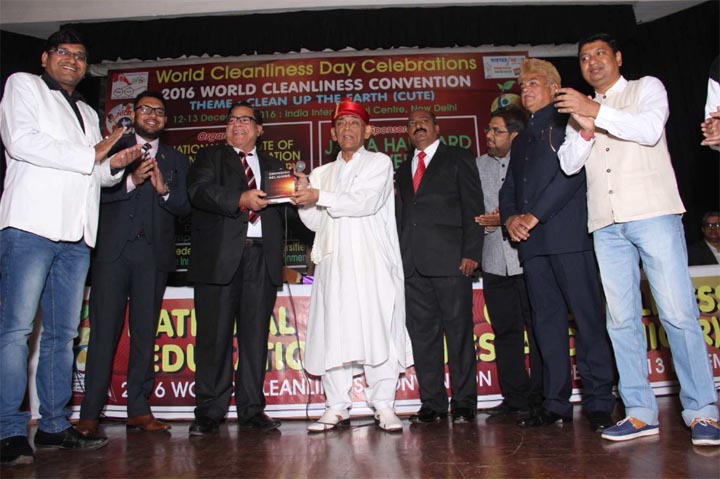
The Vice Chancellor of Glocal University
releasing the Book “Emerging Religions”.
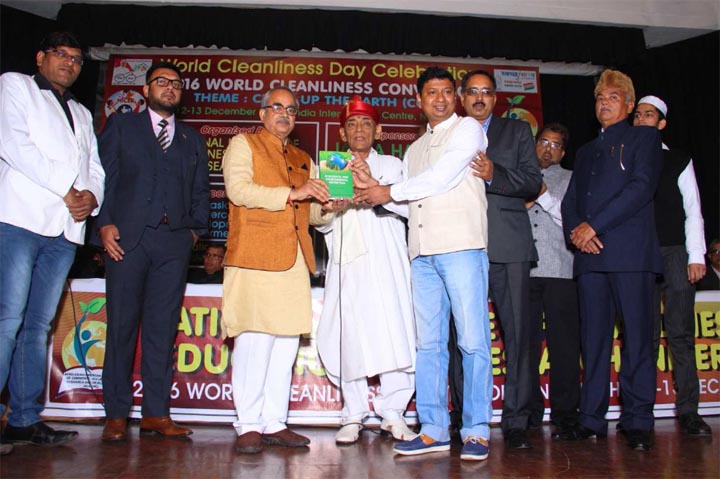
The Vice Chancellor of Atal Bihari Vajpayee
Hindi Vishwavidyalaya releasing the Book
“Ecological and Environmental Protection” during
the World Cleanliness Convention.
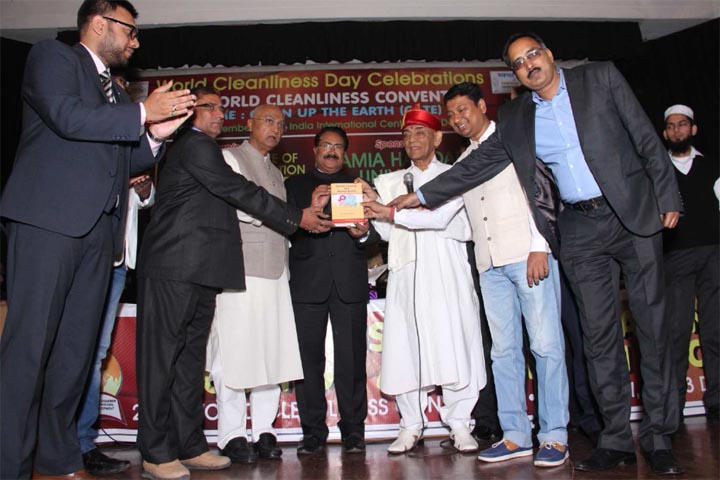
The Vice Chancellor of Lalit Narayan Mithila
University releasing the Book “Gender Equality
and Human Rights” during the World Cleanliness
Convention on 12 December 2016.
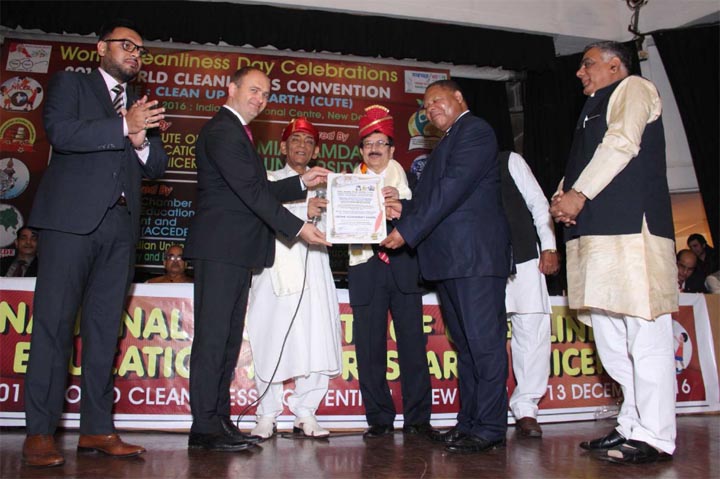
The Vice Chancellor of Jamia Hamdard being
felicitated during the World Cleanliness
Convention on 12 December 2016 at New Delhi.
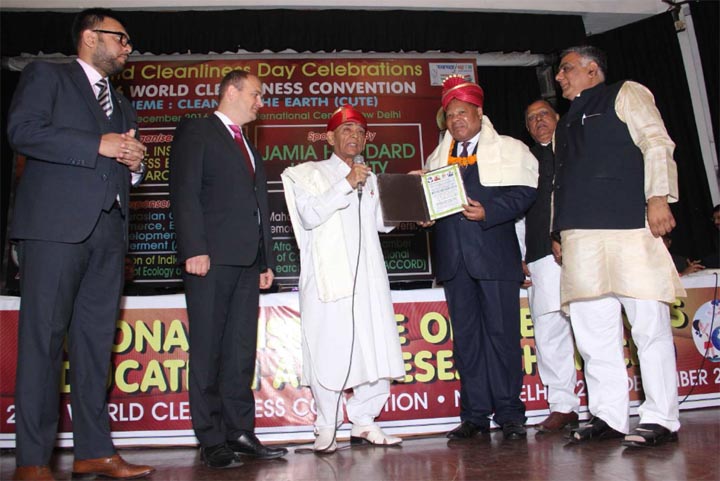
The High Commissioner of Malawi being
felicitated during the World Cleanliness
Convention on 12 December 2016 at New Delhi.
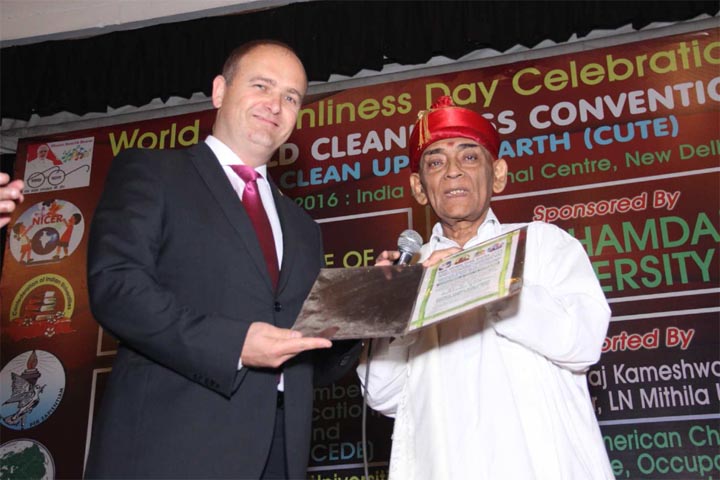
The Ambassador of Estonia being felicitated
during the World Cleanliness
Convention on 12 December 2016 at New Delhi.
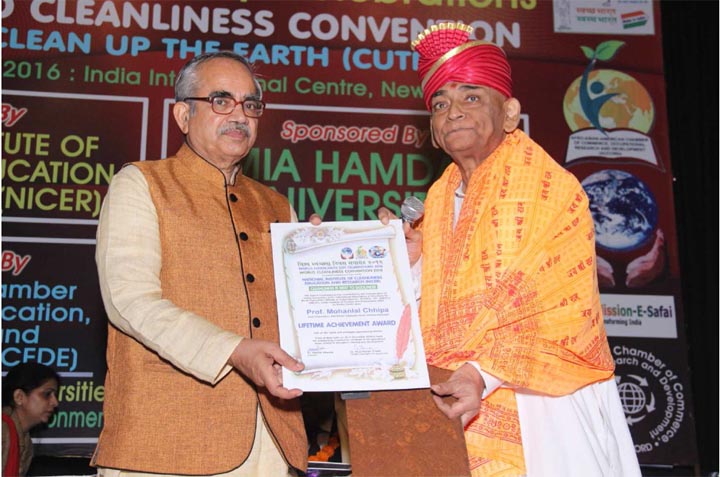
The Vice Chancellor of Atal Bihari Vajpayee
Hindi Vishwavidyalaya being felicitated during
the
World Cleanliness Convention on 12 December 2016
at New Delhi.
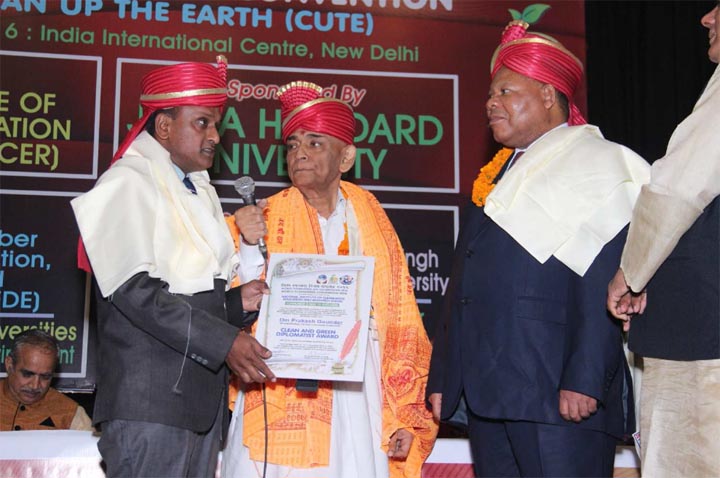
The Special Representative of Fiji High
Commission being felicitated during the
World Cleanliness Convention on 12 December 2016
at New Delhi.
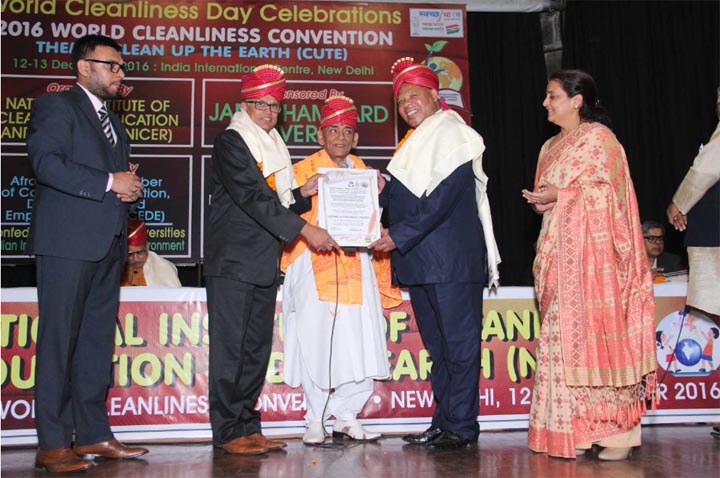
The Vice Chancellor Manipal University, Jaipur
being felicitated during the
World Cleanliness Convention on 12 December 2016
at New Delhi.
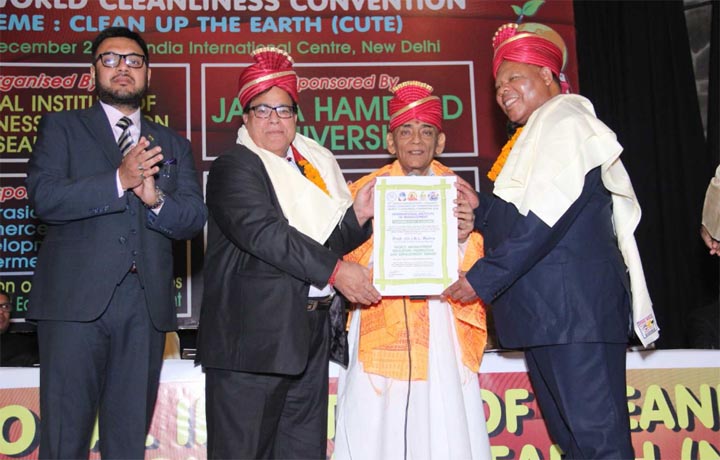
The Vice Chancellor Glocal University,
Saharanpur being felicitated during the
World Cleanliness Convention on 12 December 2016
at New Delhi.
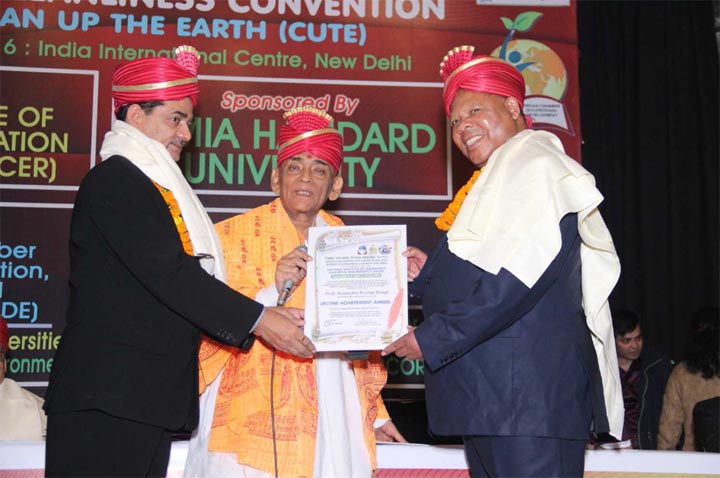
The Vice Chancellor Lucknow University being
felicitated during the
World Cleanliness Convention on 12 December 2016
at New Delhi.
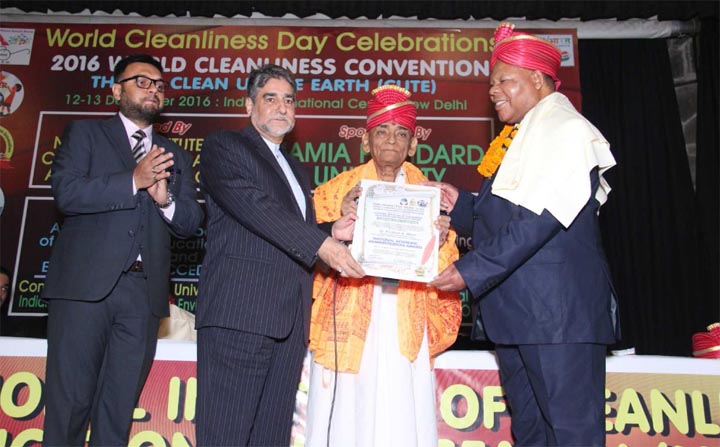
The Registrar of Jamia Hamdard University, New
Delhi being felicitated during the
World Cleanliness Convention on 12 December 2016
at New Delhi.
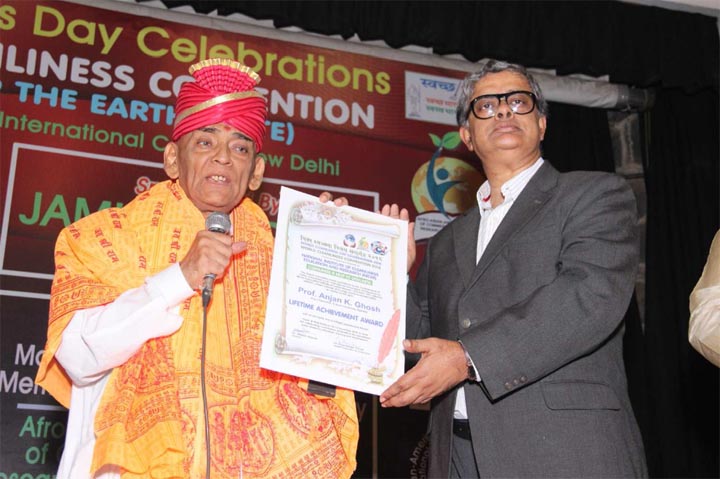
The Vice Chancellor of Tripura University,
Agartala being felicitated during the
World Cleanliness Convention on 12 December 2016
at New Delhi.
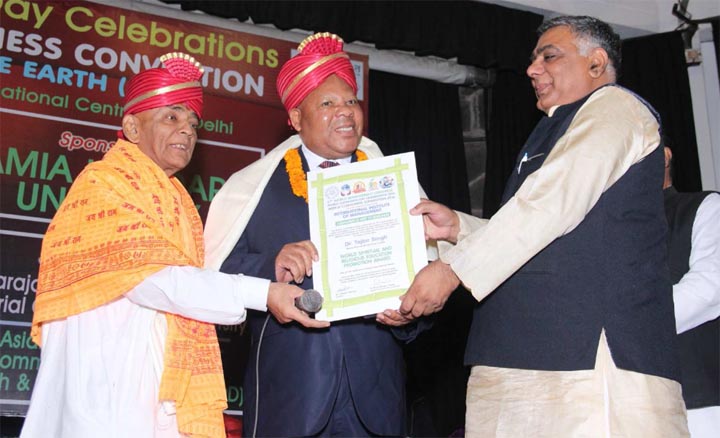
Dr. Tejbir SinghKhokhar being felicitated during
the
World Cleanliness Convention on 12 December 2016
at New Delhi.
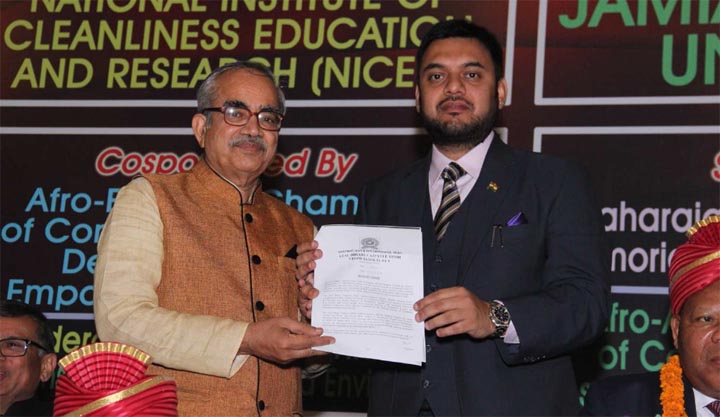
The Vice Chancellor of Atal Bihari Vajpayee
Hindi Vishwavidyalaya Prof. Mohanlal Chhipa
and the Director of National Institute of
Cleanliness Education and Research(NICER)
exchanging
MoU for strengthening the cause of Cleanliness
Education.
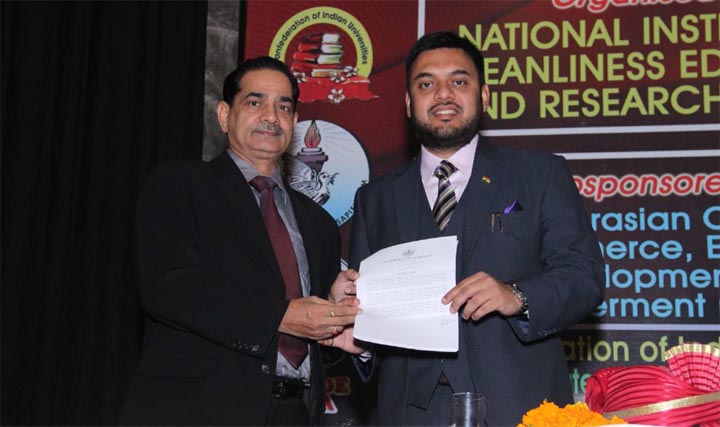
The Vice Chancellor of Lucknow University Prof.
Surendra Pratap Singh and the Director of
National Institute of Cleanliness Education and
Research(NICER) exchanging MoU for strengthening
the cause of Cleanliness Education.
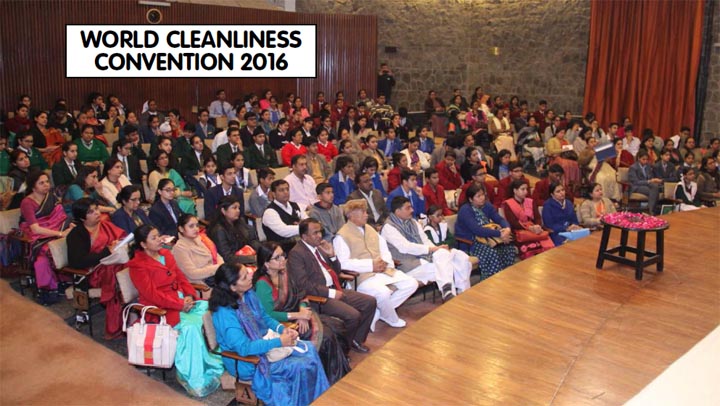
A partial view of the Delegates attending the
Inaugural Session of the
2016 World Cleanliness Convention held at New
Delhi on 12-13 December 2016
under the aegis of the National Institute of
Cleanliness Education and Research (NICER)
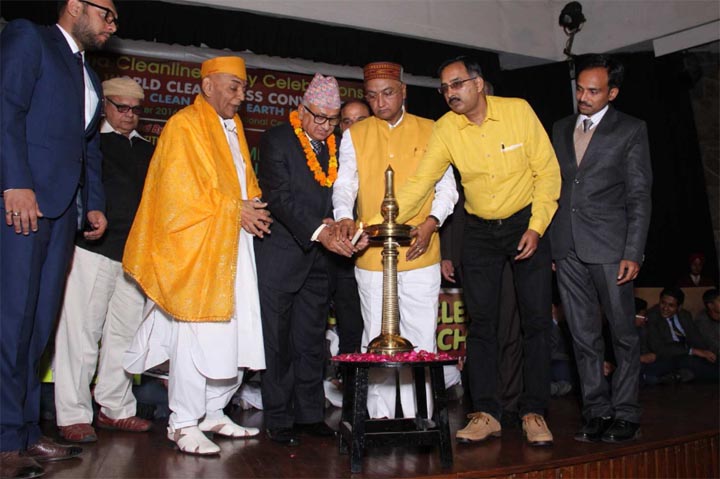
H.E. the Ambassador of Nepal Shri Deep Kumar
Upadhyay lighting the lamp by inaugurating
the Valedictory Session of the 2016 World
Cleanliness Convention on 13 December 2016 at
New Delhi under the aegis of the National
Institute of Cleanliness Education and Research.
In the photograph are (from left to right) Dr.
Utkarsh Sharma, Rai Chandrabhushan Sharma,
Dr. Priya Ranjan Trivedi, H.E. Deep Kumar
Upadhyay, Dr. Vinod Kumar Choudhary,
Dr. Nawin Kumar Agrawal and Prof. Akhilesh Waoo.
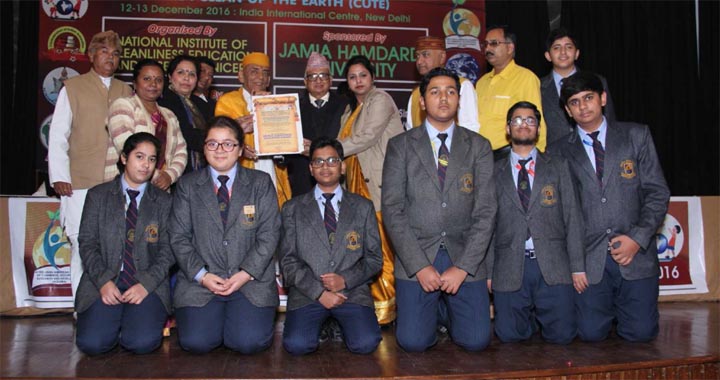
Students and their teachers getting felicitated
during the World Cleanliness Convention
held on 12-13 December 2016 at New Delhi.
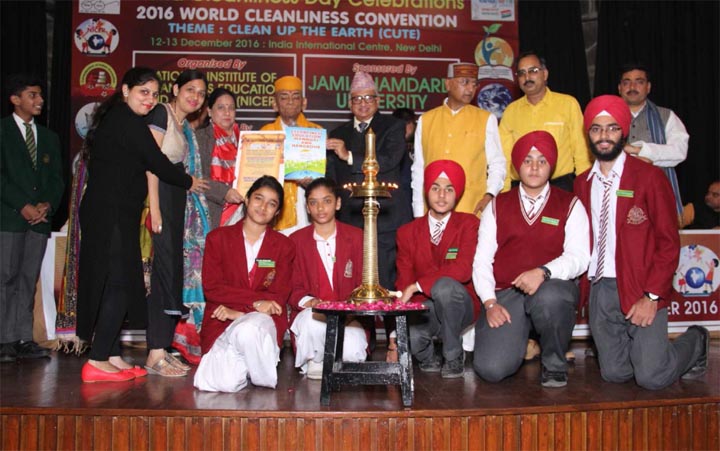
Students and their teachers getting felicitated
during the World Cleanliness Convention
held on 12-13 December 2016 at New Delhi.
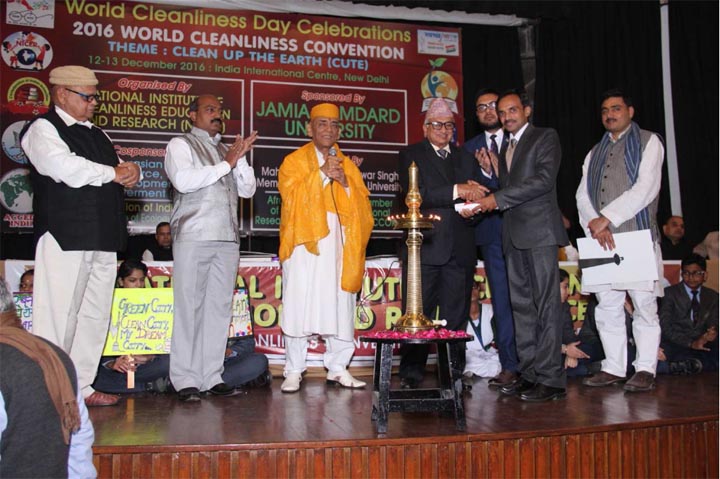
A.K.S. University, Satna represented by Prof.
Akhilesh Waoo getting the Clean and Green
University Campus Award on 13 December 2016 at
New Delhi.
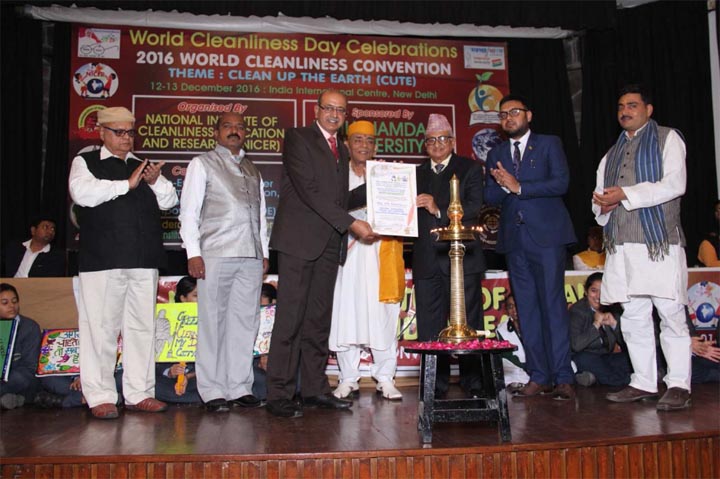
ICFAI University, Dehradun getting Special Award
from NICER on 13 December 2016.
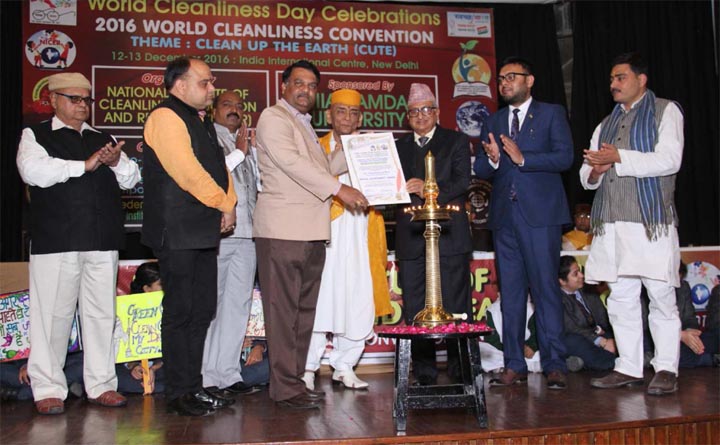
The Central Institute of Fisheries Education,
Mumbai represented by Dr. Swadesh Prakash
and Dr. Chandrakant M.H. receiving Award from
H.E. Deep Kumar Upadhyay.
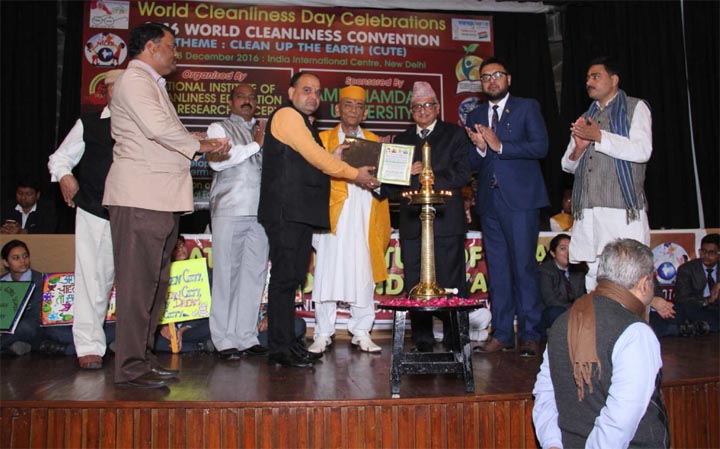
Dr. Swadesh Prakash being felicitated during
2016 World Cleanliness Convention.
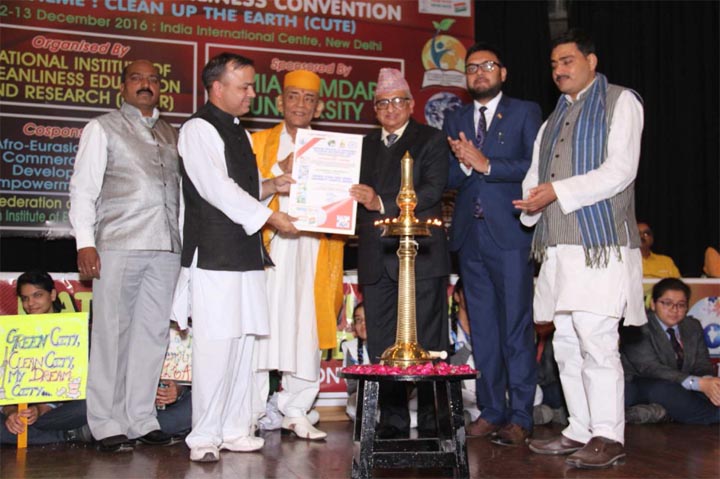
The Special Award for Alagappa University being
presented on 13 December 2016
at New Delhi during the World Cleanliness
Convention organised by NICER.
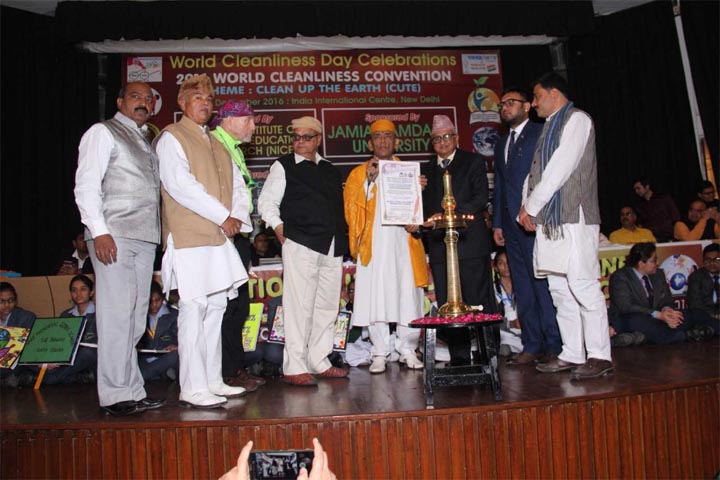
The World Clean Diplomacy Promotion Award being
conferred upon
H.E. Deep Kumar Upadhyay, Ambassador of Nepal to
India by the
Selection Committee headed by Chancellor Dr.
Priya Ranjan Trivedi.
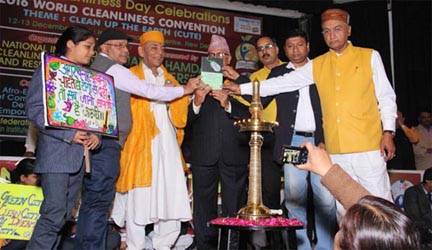
The Book titled “Water and Sanitation Related
Diseases” brought out by the
National Institute of Cleanliness Education and
Research (NICER) and
published by Jnanada Prakashan being released by
H.E. Deep Kumar Upadhyay,
Ambassador of Nepal to India on 13 December
2016 at New Delhi.
|


